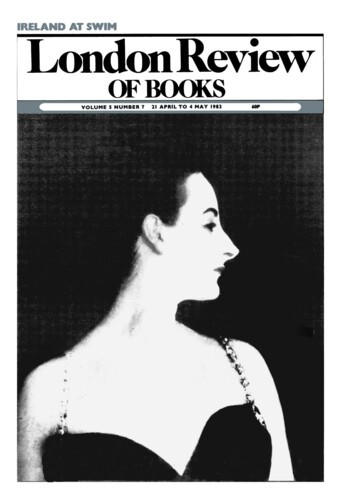Travelling
Elaine Jordan, 21 April 1983
The 19th-century novel was the great forum for writing about life – from sanitation to the condition of women, from politics to love. All the novels reviewed here are very much of the 20th century: whatever else they are concerned with, they are always about writing itself, that curious, aberrant occupation which the writer above all needs to explain to himself. One might be able to write oneself into a new way of life, more amusing than the old: in this sense (which is Anita Brookner’s sense) writing is a penance for not being lucky in love but also a way of being livelier than life. Words also preserve memory ‘which would have vanished utterly had he not enclosed it in a fortress of words’ (Christa Wolf). Writing is facing the truth, which cannot be unknown but only forgotten: it is ‘the enemy of forgetfulness, of thoughtlessness. For the writer there is no oblivion. Only endless memory.’ This is something Look at Me painfully reiterates. But writing is also, like everything else, subject to change according to circumstances. The illicit book which has sent A., the hero of The Viaduct, to prison no longer seems of any significance to him. For Kleist, as imagined in No Place on Earth, ‘the passion which swept him away … was the seduction of words far more than the need to communicate with any particular human being.’ In Malcolm Bradbury’s Rates of Exchange, stories are a currency like any other, paper fictions: but for Bradbury’s novelist Katya Princip they are also a way of learning ‘a certain sense of existence’. Even after betrayals and devaluations her message for the hero remains: ‘I mean to give you a better sense of existence.’ But the manuscript that bears her meaning gets blown up. Maybe Brookner’s view, which holds, like Thomas Mann’s, that to be a writer means dying to ordinary life, is less discouraging. Wolf’s Kleist feels something of this kind, but struggles at the boundaries between ideas and writing and life.–

